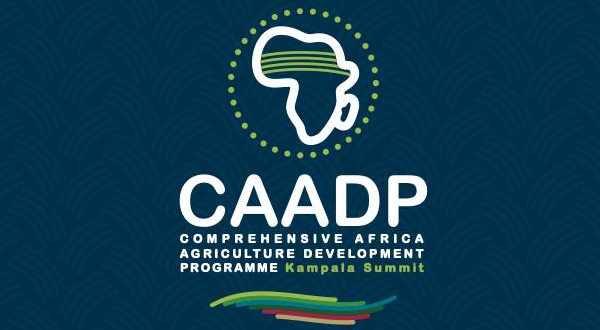(3 Minutes Read)
The African Union (AU) has introduced a detailed 10-year plan aimed at revamping the agricultural sector and improving food systems across the continent. This initiative was solidified through the Kampala Declaration, which was announced at the concluding ceremony of the AU Extraordinary Summit on the Comprehensive Africa Agriculture Development Programme (CAADP) held in Kampala, Uganda.
A key aspect of this strategy is the goal of boosting agri-food production by 45% by 2035, while also cutting post-harvest losses by 50%. To achieve these targets, African countries have committed to raising USD 100 billion in both public and private investments within that timeframe. The declaration highlights the importance of a collaborative effort involving governments, parliaments, food producers, the private sector, and civil society to reach these objectives. It asserts, “Together, AU can transform Africa’s agri-food system into a sustainable and inclusive future.”
Founded in 2003, CAADP aims to eliminate hunger and reduce poverty in Africa. At its launch, member states promised to allocate 10% of their national budgets to agriculture, prioritising increased investment in this sector.
During the summit, Ugandan President Yoweri Museveni urged the adoption of commercial agriculture and value addition as keys to economic growth. He recommended that families with limited land should focus on intensive agricultural practices, while those with larger areas could consider extensive methods. Museveni stated, “Fully commercialise agriculture to achieve food security and household income through agricultural enterprises.”
The three-day summit brought together over 2,000 delegates, including agricultural specialists, ministers, and heads of state from more than 40 AU member countries, to discuss the continent’s agricultural challenges and future strategies.
The AU’s renewed emphasis on agriculture is timely, given the significant food security issues facing the continent. The Food and Agriculture Organization (FAO) indicates that Africa has a large share of the world’s undernourished population. The COVID-19 pandemic has intensified these challenges by disrupting supply chains and affecting food production.
The new strategy seeks to tackle these issues by promoting sustainable agricultural practices, enhancing infrastructure, and improving market access. By minimising post-harvest losses, the AU aims to ensure that more food reaches consumers, thereby boosting food security and increasing farmers’ incomes.
Investment in agriculture is also anticipated to drive economic growth and generate jobs, especially for young people. The AU’s goal of mobilising USD 100 billion in investments highlights the agricultural sector’s role as a key driver of development.
Achieving these ambitious targets will require overcoming various challenges, including land tenure issues, better access to finance for smallholder farmers, and adapting to climate change. The success of the strategy will rely on effective implementation at both national and regional levels, as well as the active involvement of all stakeholders.
Read Also:
https://trendsnafrica.com/african-union-asks-for-debt-relief-at-china-africa-summit/
The AU’s commitment to transforming agriculture represents a significant move towards ensuring food security and fostering economic development in Africa. The coming decade will be crucial in determining the effectiveness of these initiatives and their impact on the livelihoods of millions across the continent.





